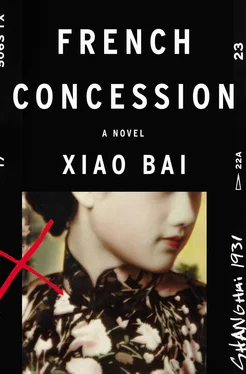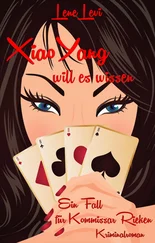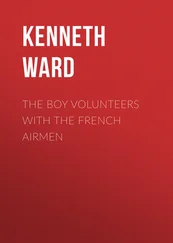The burly Frenchman introduced himself as Sergeant Maron. Maron’s love of Indian food was evident from the scent of curry about him and the yellow-black stain on his lapel. His laughter echoed in the little third-floor room facing north on Route Stanislas Chevalier. Hsueh was brought a stack of documents to sign, and asked to sit on the chair.
No one asked if he wanted a cigarette, but they forced one between his teeth. His ears were still ringing.
Let’s start over again, said Sergeant Maron. Let’s say we’re just chatting like old friends, and it turns out I have a few questions that you might be able to help answer. Remember to give me as much detail as possible.
He started with the journey. When Hsueh admitted that Therese had paid for the whole trip from Shanghai to Hong Kong, Haiphong, and Hanoi, that she had booked their passage and paid for hotels as well as restaurants, Sergeant Maron clapped him on the shoulder. Good for you! he said.
But why did she pay your way? Surely not just because she’s rich — why wouldn’t she pay me, Sergeant Maron, to accompany her instead? Are you saying you’re a better man than I am?
Or did she pay for you because you are her lover? What did you do when you weren’t in bed? Did you take her for walks, or go to the beach in bathing suits? If you spent all day indoors, does that mean you were in bed all day? Let’s talk about something more interesting. What is she like in bed? Tell me — you’d like to help me, wouldn’t you?
Hsueh remembered the warm subtropical wind, the humid bedsheets, and the way the overhead fan turned slowly. You bastard, you know I have to keep you happy because of that tin bucket of yours. He called his photographs to mind.
“Sometimes we’d smoke in bed and have the servants bring us meals. She could never have enough sex. If I got tired, she would get on top of me. She loved to lie on the edge of the bed and stretch her feet upward.”
Like official newsreels of soldiers in the trenches, putting up their arms to surrender. His gaze would travel upward from her red knees and painted toenails toward her face, on which shadows of the ceiling fan flickered.
“Go on,” said Sergeant Maron. He lit a match and began tapping lightly on the surface of the table. He seemed to believe Hsueh. He looked as if he were trying to picture the scene.
“As soon as we stopped, we would light a cigarette. Just one, and we’d take turns taking puffs. She likes Garricks, and you can get a whole tin of them for one yuan. They have no filters and are thicker and shorter than 555s. She would take the cigarettes out of the tin and keep them in a silver cigarette case. I always lit the cigarettes because she said she had better things to do with her hands. If the case wasn’t right there, she’d have me hunt everywhere for it. Some days I could turn the room upside down and not find the cigarette case. She probably hid it on purpose because she liked watching me walk about the room naked. My ‘Chinese ribs’ turned her on, she said. That was her private nickname for me. Later I would discover the cigarette case bundled up in the bedsheets with her sitting on it. She’d laugh and say, it was wrapped in black sheepskin and I was numb all over, that must be why I didn’t notice it was there.”
Hsueh kept inventing things he thought Sergeant Maron wanted to hear. Desperation can be the mother of invention, he thought. He and the sergeant were beginning to share the conspiratorial pleasure of the interrogator and the interrogated. Words came flooding to him as if he were an author whose writer’s block had evaporated at the end of a sleepless night.
“So you’d been through her bedroom and never came across anything suspicious?”
“You mean a gun?” Hsueh didn’t mean to say that, but the words slipped out.
“Does she own a gun?”
Sergeant Maron looked at him with a curious expression. He seemed to be momentarily fascinated by the buttonhole of Hsueh’s thin linen jacket, from which a withered cape jasmine sprouted. Then, as though awakening from a daydream, he began to ask Hsueh more questions.
“How much do you know about her? They say she’s German.”
“No, she’s Russian.”
Sergeant Maron waved his hand dismissively. He disliked being interrupted. “Have you seen her documents? Does she have a Nansen passport or travel papers signed by the tsar? How dare you call yourself her lover when you know nothing about her?”
He paused, as if he were about to announce something important, to rebuke Hsueh for his ignorance.
“The woman the Chinese call Lady Holly, your Therese, is Therese Irxmayer, an extremely capable woman who owns a company based in Hong Kong. She is far more dangerous than you think, and the Concession Police is presently investigating her undesirable activities. We believe she has crooked friends running a shady business. We would like you to help us by getting involved, and give us news of her friends. It would be in your interest to cooperate — the police department will not forget your assistance, and I will personally be grateful.”
Two policemen took him to the hotel. The Frenchman drove, and Hsueh sat in the back with the Chinese man. The car stopped outside the Astor in the rain. When the engine started up again, the Frenchman saluted him playfully with two fingers of his left hand held crooked. He was wearing a raincoat with a matching hat at an angle.
“ Mes couilles ,” Hsueh muttered under his breath, tossing his cigarette end into a puddle.
The gate was closed, and the elevator shaft rumbled. He walked across the lobby to the stairs, to stretch his legs. He was tired and hungry. At nine o’clock they had gone to the Cantonese eatery on Pa-hsian-ch’iao. Eat, Maron had said, but Hsueh had barely eaten. It was the break between shifts, and the place was full of cops.
The men had stared at him while he was making a phone call to Therese. One was standing inside the phone booth, about three feet behind him. The other stood outside the phone booth, facing him from behind the glass. Then they dropped him off and politely said good-bye.
Hsueh’s muddy shoes made squelching sounds on the patterned wood floor.
All day long, those voices had mocked him, menaced him, and tempted him. He almost thought he could hear them coming from the paneled walls in the hotel. It was those voices that convinced him he would do it, not the terror he had felt that morning when he was tied up in an empty room, lying on the floor with his head in a tin bucket.
JUNE 5, YEAR 20 OF THE REPUBLIC.
1:15 P.M.

Therese did not mind being called Lady Holly by the Chinese. At least Holly was shorter than Irxmayer. Besides, even Irxmayer wasn’t really her name. A blond Austrian man had given it to her in Talien. She preferred this name because she preferred to forget the past. She often said to her assistant, Yindee Zung: if you can’t forget the past, how can you keep going? Yindee Zung was Zung Ts-mih’s sister, and he once wrote his Yindee’s name in Chinese and showed it to Therese — Ch’en Ying-ti. He told her Yindee was Siamese for happiness . Zung himself was Yindee’s “fifth brother” in a large clan that seemed to span Hong Kong, Hanoi, and Saigon. Yindee had tried time and again to explain the complex web of family relationships to her, but Therese never seemed to get it.
In Hong Kong, Zung could find a buyer for just about anything, and he could source anything you wanted. Immaculately dressed, he would go into any dark walk-up, push the door open, climb the narrow wooden stairs, and extend his soft, delicate hand. He could cut deals with smugglers, the gangs, or even with Communists.
Читать дальше













